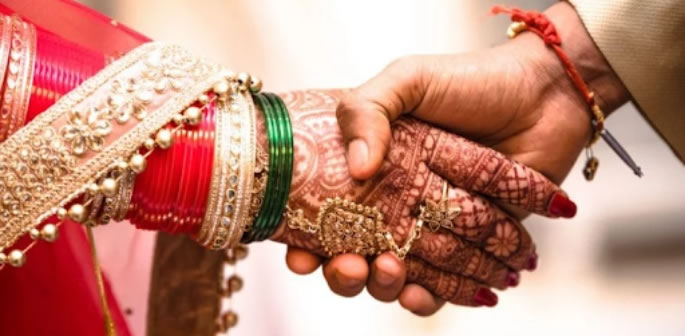"The effect will be fewer children with congenital anomalies."
According to a study, the number of people in Bradford’s Pakistani community who have married a cousin has fallen sharply in the past 10 years.
Possible reasons include higher educational attainment, new family dynamics and changes in immigration rules.
Juwayriya Ahmed married her cousin in 1988 and revealed that her children once asked her how she and their father met.
She said: “I was laughing at them. I said I didn’t really meet him.
“My parents took me to Pakistan and my dad said you’re going to marry this person. And I sort of knew who he was, but the first time I met him properly was at the wedding.
“My kids said that was disgusting. And then they told me, ‘Don’t you dare make us do anything like this’.”
In 2013, researchers studying the health of over 30,000 people in Bradford found that approximately 60% of babies in the Pakistani community had parents who were first or second cousins.
A follow-up study has found that the figure has dropped to 46%.
The original study also highlighted the risk of birth defects as it affected six per cent of children born to cousins.
Dr John Wright, chief investigator of the Born in Bradford research project, said:
“In just under a decade we’ve had a significant shift from cousin marriage being, in a sense, a majority activity to now being just about a minority activity.
“The effect will be fewer children with congenital anomalies.”
The Born in Bradford study originally recruited 12,453 pregnant women without regard to ethnicity between 2007 and 2010, whose children joined the project when they were born.
Their health has been tracked ever since.
A further 2,378 mothers from three inner-city wards were recruited for a follow-up study between 2016 and 2019.
The new research compares them with the 2,317 participants from the same wards in the original cohort.
In both cases, Pakistani heritage mothers made up between 60% and 65% of the total.
While 62% of these women in the original group were married to a first or second cousin, the figure dropped to 46% in the latter group.
The drop was more significant among mothers born in the UK – from 60% to 36%.
For those educated beyond A-Level, the figure dropped from 46% to 38%.
Although the women included in the latest study are all from less affluent inner-city wards, researchers say they are still representative of Pakistani-heritage mothers in Bradford as a whole.
Professor of Health Research Neil Small says several possible explanations for the drop in cousin marriages are now being explored:
- Awareness of the risk of congenital anomalies has increased
- Staying in education longer is influencing young people’s choices
- Shifting family dynamics are changing conversations about marriage between parents and children
- Changes in immigration rules have made it harder for spouses to move to the UK
Bradford-born Ayesha is one person affected by the new immigration rules.
She married her first cousin in Pakistan in 2015 and gave birth to their first child the following year.
Her husband could not move to the UK until the baby was two.
Meanwhile, Ayesha had to work long hours to reach a salary threshold introduced in 2012 for anyone wanting to bring a spouse from outside Europe to live in the UK.
But she believes cousin marriages are a valuable tradition and regrets that it is apparently in decline.
She told the BBC: “I don’t think my children will marry cousins. They will lose that connection with Pakistan and I feel sad about that.”
Two of Ayesha’s younger sisters have rejected the idea of cousin marriage.
Salina recently married a man of her own choice with her parents’ consent.
She explained: “I’m outgoing and I want to work and do things with my life. Someone from Pakistan wouldn’t accept this at all.
“They would never let me live like this. We wouldn’t agree on how to raise kids and how to teach them values.”
Her other sister Malika is also planning to choose her own husband.
She said: “Before, even if you had an education, you wouldn’t be expected to carry on with it, you would have been thinking of marriage.
“Now that’s changed and the mindset is so different.”
Malika says young people today have more opportunities to meet potential partners than their parents and social media has helped provide “contact with people outside our parents’ eyes”.
The Born in Bradford researchers have tried explaining to the community how congenital anomalies occur.
Dr Aamra Darr, a medical sociologist with the University of Bradford’s Faculty of Health Studies, says cousin marriage is a risk factor but not a cause of congenital anomalies.
According to the 2013 Born in Bradford Study, the risk of married cousins having a baby with a congenital anomaly was similar to that of a white British woman aged 35 or over having a baby with an anomaly, including Down’s Syndrome.
But she says health workers have sometimes told parents of a sick child in the Pakistani community:
“It’s because you married your cousin.
“It’s culture blaming. You’re talking about the politics of race and health – the minority being judged by the majority population.”
According to Professor Small, approximately one billion of the global population live in societies where cousin marriage is commonplace.
But it is now rare in the UK.






























































